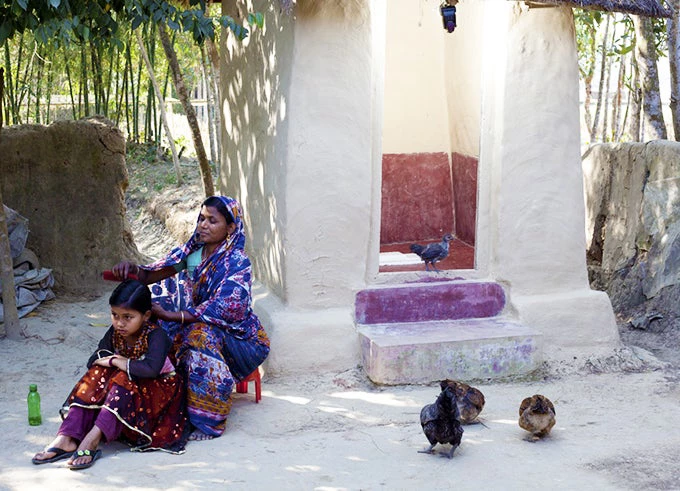
Amena Begum resides in a village in the Habiganj district in Bangladesh and is a mother to three young children. Last year Amena spent US$100 to construct a toilet to ensure her three children were hygienically protected from feces.
Even though her family members have adapted to using the toilet, exposure to fecal contamination can occur anywhere. For example, while playing outside, a child may accidentally ingest soil with animal feces, or the child could be exposed when he or she eats food off of dishes washed with pond water.
It is also not uncommon for families without toilets to throw feces into a nearby bush, which remains exposed in their living area. These actions can lead to the contraction of hazardous, lethal diseases and create a traumatizing effect on the lives of many children, not to mention the unfavorable impact on the environment.
A new study on early childhood diarrhea in rural Bangladesh found that despite high on-site latrine access, frequent fecal contamination was present along all environmental pathways investigated. Human fecal markers on children’s hands and in soil, and rotavirus in stored water, soil and on hands had been detected. Animal (particularly ruminant) fecal markers were highly prevalent in water, soil and on hands.
Changing behaviors will help improve child health and development
The study observed that reducing open defecation helped contribute to low overall levels of human fecal contamination. To further preventing fecal exposure among children under 5 years, additional program interventions beyond promoting toilet use are recommended to minimize exposure to both human and animal fecal contamination.
The study suggests that changing household behaviors will complement access and use of improved latrines in rural Bangladesh, especially:
- Safe management of child feces, including hardware (e.g. potties) that prevents child feces from touching the ground
- Handwashing with soap, including enabling products (e.g. handwashing stations to keep soap and water conveniently located)
- Use of chlorine tablets and safe storage containers for treating and hygienically storing household drinking water
- Use of improved water sources (or chlorinated water) for cleansing utensils, dishes, and produce
- Discouraging children from intentionally or accidentally eating soil
- Read the study Early childhood diarrhea in rural Bangladesh


Join the Conversation